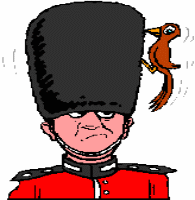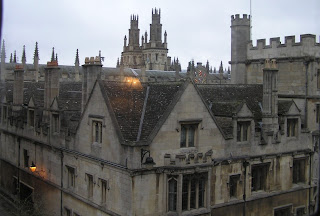The time on the clock is half-past four. But although this famous newspaper is as British as tea-time, the time is actually half-past four in the morning. That is the time when the first edition of The Times used to appear.
The Times is the most influential newspaper in Britain. It is independent of governments and political parties.
But this was not always the case.
In its early days the newspaper was paid to criticize members of the Royal Family. For this the unfortunate owner was sentenced to two hours in the pillory and two years in prison!
However, The Times soon established a reputation for independent, accurate and rapid information. (At one time the newspaper used to publish foreign news before it reached the government.)
In 1840 The Times sold more copies than all the other British newspapers put togetger. Today, it has a comparatively small circulation. But its influence and prestige are enormous.















